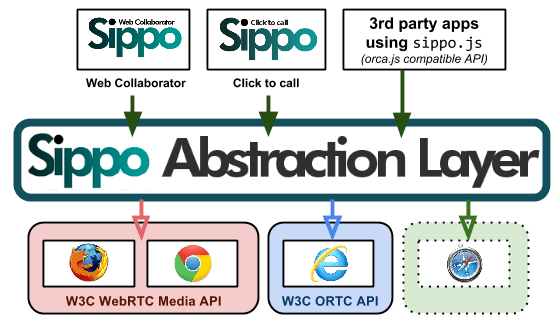Enabling browser and native mobile application support for Real-Time Communications
16 May 2014While complete browser support is yet to be achieved, the industry is working to resolve these challenges. Quobis is happy to share the following updates on this topic:
- Sippo can run on iOS and Android based devices as native applications, using the standard media profiles for WebRTC (VP8, DTLS-SRTP, ICE/STUN, etc.), like any other WebRTC application, managed and controlled by Quobis’ Sippo WAC (WebRTC Application Controller).
- Microsoft is playing an active role in the definition of an alternative API named ORTC and even released an early prototype for Internet Explorer. Sippo WAC hides the complexity resulting from API fragmentation and enables WebRTC applications to work seamlessly irrespective of the underlying browser.

- Meanwhile, and as interim solution, the industry has released a number of plugins to enable WebRTC support on desktop versions of Internet Explorer and Safari. Sippo apps have been verified to work with these plugins.
Quobis joins ATIS device solutions initiative
Quobis, the leader in WebRTC applications, today announced that has joined the Device Solutions Initiative (DSI) of the Alliance for Telecommunications Ind[...]



